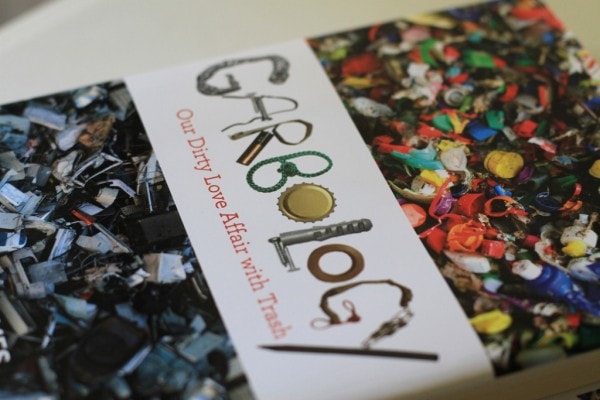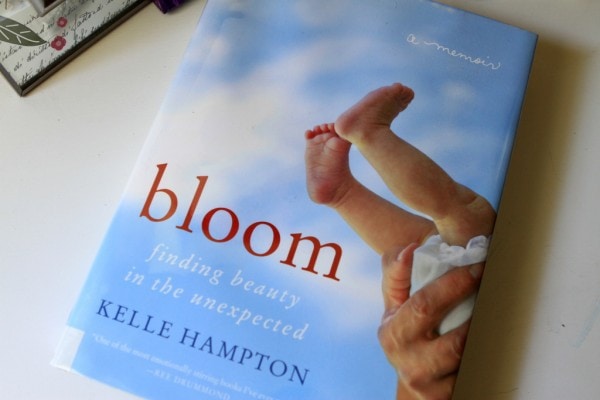Every so often, I write a post about the books I’ve been reading lately. Here are the two I’ve finished most recently.
Garbology

I mentioned recently that I read Garbology, a new book about America’s trash problem (We Americans are on track to throw away 102 tons of garbage per person over our lifetimes!). Laura Vanderkam thought I’d enjoy reading it, and she was so right.
Garbology talks about the history of trash disposal in America, a topic I knew very little about before, and which I found fascinating.
And the chapter that talks about the development of the consumer culture we currently live in was both fascinating and disturbing. Here’s a quote from J. Gordon Lippincott, a pioneer in marketing and corporate branding said in 1947:
“Our willingness to part with something before it is completely worn out is a phenomenon noticeable in no other society in history…it is soundly based on our economy of abundance. It must be further nurtured even though it runs contrary to one of the oldest inbred laws of humanity, the law of thrift.”
AAAAAAH!
Unfortunately, Lippincott and his marketing colleagues have been largely successful in nurturing this throwaway culture, given that Americans throw away 7.1 pounds of trash a day. We produce so much trash, it’s actually our nation’s largest export product.
And sadly, we’re much more wasteful than people in most other countries..Americans waste 50% more than Danish citizens do and twice as much as Japanese people.
Even in cities where recycling and composting are really popular, we’re still producing a whole lot of waste that needs to be dealt with, partly because when recycling is available, we feel like it gives us license to buy and dispose. And while recycling is usually better than landfilling something, the recycling process still uses a lot of energy.
Ultimately, Hume says, the solution is for us to consume less stuff than we do now. He suggests these five steps:
1. Refuse (things like catalogs, over-packaged produce, and promotional products)
2. Buy used and refurbished (this keeps resources out of the waste stream and lowers demand for new products)
3. Stop buying bottled water (a hearty amen from me!)
4. Don’t use plastic grocery bags.
5. Buy wisely and buy less (this is the heirloom concept I blogged about before…buy fewer items, but when you buy them, carefully choose things that will last a long time.)
I definitely think you should read this book…it’s entertaining and educating, and I think it’ll inspire you to reduce the trash footprint you leave on this earth.
______________________________
Bloom

At first glance, this seems like an odd book to review here on a blog about frugality, but since I talk a lot about contentment and finding joy, I thought you guys would like to hear about it.
I really enjoy reading Kelle Hampton’s blog, Enjoying The Small Things, so when I heard she was writing a book, I put it on hold at my library right away.
Kelle’s blog is full of pictures, and this book is sort of like a hardbound blog. It has a lot of words, naturally, but there are color photos all over the place, which I love (of course.) The language gets a little flowery in places, but if you read her blog, you’d probably expect that. 🙂
In the book, Kelle talks openly about her struggle to accept her daughter Nella’s Down Syndrome diagnosis, but she also interweaves the story of hard times in her childhood (her parents had a tough divorce, and she spent a lot of her younger years separated from her dad.)
I’ve been faithfully reading Enjoying the Small Things since Nella was born, so it was really interesting to learn more about Kelle’s story and also to hear more detail about the days and weeks following Nella’s birth. I don’t share Kelle’s religious beliefs, but I am still inspired by her optimistic, joyful attitude.
People have criticized Kelle for the cheerful way she’s now handling life with Down Syndrome, but I really respect her for it. There are hard challenges in life, to be sure, but getting down in the dumps about those hard things is rarely productive or helpful.
When something difficult happens to you, you can choose to make the best of it, and when you do, you and the people around you are usually better off for it. Looking for the good makes an enormous difference for me, and I think it’s a large key to cheerfully living on less.
________________________
What have you been reading lately? And have you read either of these two books? I’d love to hear your thoughts if you have!

Lilypad
Wednesday 20th of June 2012
I read Kelle's book last month and I am also the mother of a special needs child, so I came at it from a different perspective from most readers. My son's 2 neurological disorders (Tourette Syndrome and Sensory Processing Disorder) were not diagnosed until he was 6 and 9, respectively, so we didn't have that overwhelming moment of realization that our child had disabilities, as Kelle did. We came to the realization gradually, after years of heartache, and it's still devastating that way, but probably easier to handle. Who knows. Ever special needs parent has their own experience of the journey. I appreciated Kelle's description of how overwhelming it was to her in the beginning, but what didn't ring true to me was how quickly she made the turnaround to more of an "everything's all peachy keen" mentality. I'm glad that she is a naturally happy person and has a "can-do" attitude about it. I know her daughter will bring her unimaginable joy in the coming years. But there are difficulties, too. It's often a kind of "two steps forward, five steps back" situation. In my life, dealing with behavioral issues/bullies/stares from people on the street/lack of support from family and friends has been a long, tiring slog. Things are way better than they were when he was younger, but we still have moments when all I can do is pray to get past them and know that the next day will be better. I worry so much about how he will navigate the world on his own when he's an adult and wonder if I'll ever have my "normal" life back. Not that I want to go back to that easy life before him. I'm very blessed to be the mom of this particular child, because I know I can help him and understand him better than anyone else. We homeschool and live a much simpler life, on one income, so that our son can have the best possible life. The lack of understanding from my own family has been awful and has made things way worse than they needed to be. Kelle is lucky to have so much support from her family, friends, and even complete strangers who read her blog. As you read her book, just remember this: be compassionate to children who are "different" and their parents when you see them in a store or at the park. Don't judge how the child behaves and assume that a kid having a "tantrum" is just "spoiled". If a child in your family is diagnosed with a disability, educate yourself as much as possible. Respect the parent's wishes as to how the child will be raised. Simply love the child for who he/she is and never let them feel that they are not good enough. I hope Kelle's book is read by a lot of people who have no experience with special needs children and that it opens their eyes to these amazing kids and what they can do in the world.
Susan
Wednesday 20th of June 2012
Lilypad,
My son attends karate with a young man with ADD/ADHD and verbal/twitching Tourettes. I have watched him grow from a young ten year old to an amazing 17 year old black belt who drives himself to class 5 days a week. For this young man, his symptons seem to have gone away (outgrown some of them?) Anyway, karate and the discipline that goes with it really seems to have helped. Best wishes with you son.
{Adventuresindinner}
Wednesday 20th of June 2012
Perfect timing! Just compiling my summer reading list now C:
Hetal@Real World
Wednesday 20th of June 2012
Yesterday, I was digging your blog and found the post about the 'Blogs-you-read'.. I found Kelle's blog and next moment, I was reading her blog about how she has accepted Nella's medical situation. I would love to buy and read this book , if it is available in India..
Tracy
Tuesday 19th of June 2012
Great book reviews, both books sound very interesting, thanks for sharing!
WilliamB
Tuesday 19th of June 2012
"It must be further nurtured even though it runs contrary to one of the oldest inbred laws of humanity, the law of thrift."
Blanket statements like that, embodying a Ye Olde mentality and without references, get my contrarian research juices running. So: from what I've read, and heard from modern-tribe anthropologists, this may not be true - sometimes yes, sometimes no. For example, Aborigine towns in Australia are often just as messy as white neighborhoods that are equally poor. If you closely observe tribes that use natural projects they drop a great deal of stuff on the ground when they're done, as opposed to putting the trash into a pile or out of their living areas. This isn't apparent to the outside untrained eye becuase it just looks like leaves and twigs or whatever.
OTOH we have very little clothing from most periods in history because cloth and clothing was so god-awfully resource intensive to make. Most items were made in a way that used up all the fabric and every last scrap and rag was utilized in some fashion or another.
Kristen
Tuesday 19th of June 2012
I don't know if what the owner of the quote said was true historically, but what I was distressed about was the idea that we should encourage this sort of behavior. And it's depressing that marketers have been so successful at getting us to buy into the throw-away mentality.